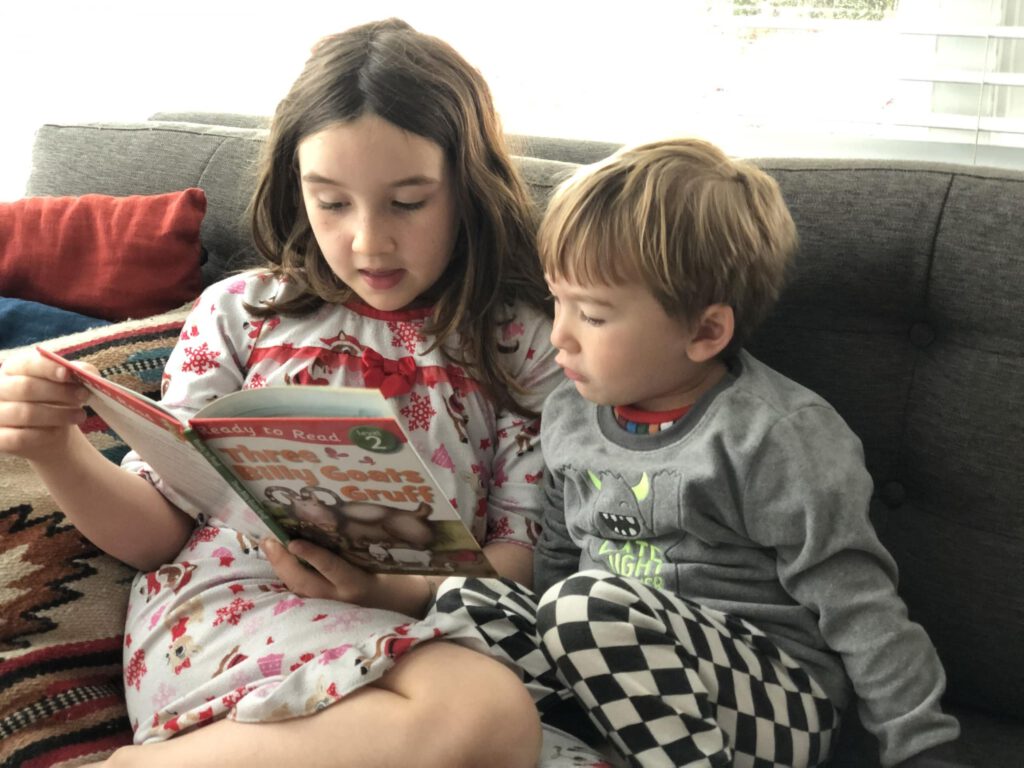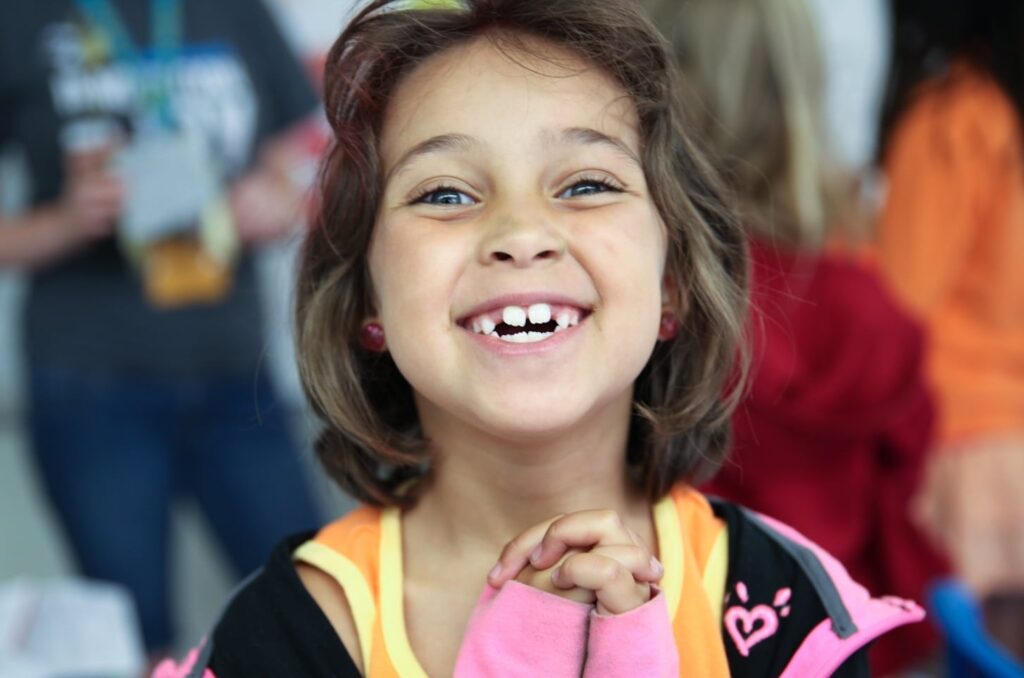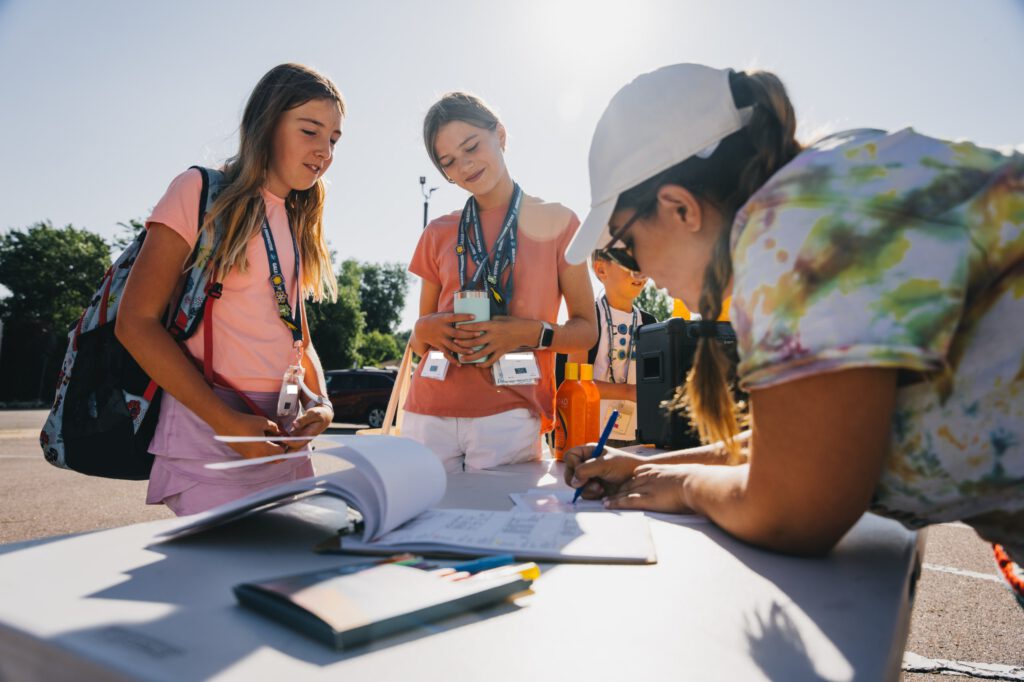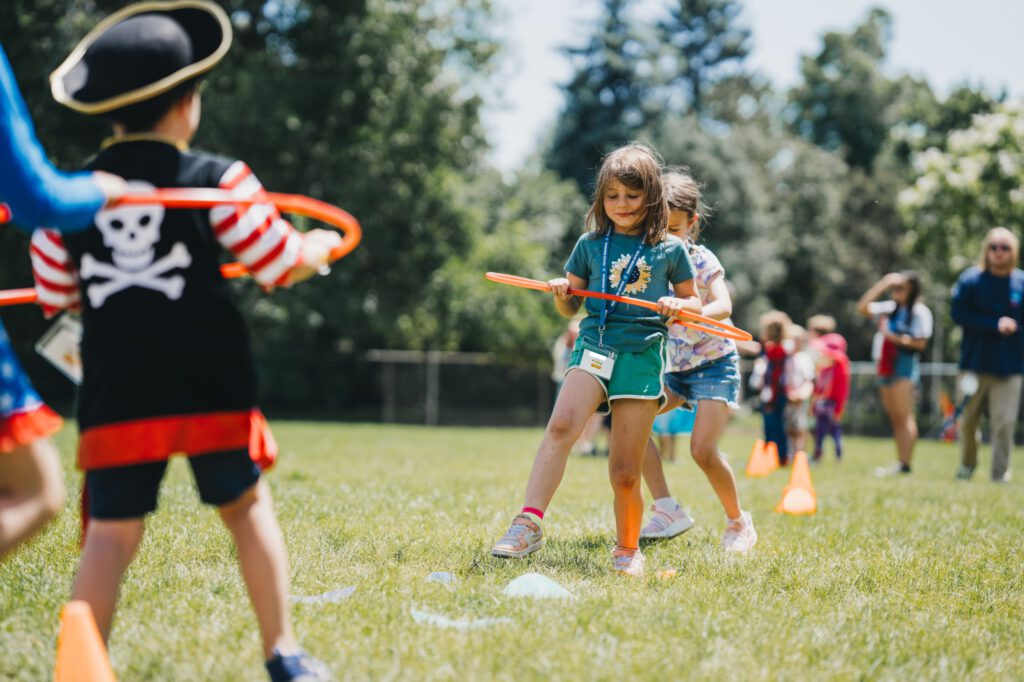When shelter in place settled over my family like a glass dome placed gently over the house, I am now sheepishly aware that like a dryer on spin cycle, I went into go mode. I had phone calls with my parents to be sure they were safe. I designed schedules for the kids that were fun and balanced. I started writing and painting about the experience we were having. I researched how to contribute locally, set up a materials wall in our house, started early morning yoga, mid-morning family huddles, and even began plans to build a treehouse in our yard. We can call it overachieving or over-functioning. We can say “I type-A’d” out. Whatever we want to name it, that’s what I did.
And then three weeks into quarantine and feeling like we were in a good, if exhausted, place as a family, I took a Thursday and Friday off to focus all of my attention on our three- and seven-year-old kids.
That first day off, I burst into tears three times before lunch.
I walked myself outside into the yard and sat myself down on a bench to figure out what in the blazes was going on. I had been doing the work-from-home-with-kids thing for three weeks and had been fine. Now, taking a morning off was overwhelming me? My goals for the day off were to unplug and have some fully connected time with my kids. I had wanted to give them all of my attention instead of trying to multitask so why, suddenly, when I had one calm endeavor to pour myself into, was I overwhelmed?
I looked up and watched the tree branches moving like seaweed underwater. A neighborhood cat streaked across the planter beds as if I couldn’t see it if it ran fast enough. As I focused on the moment I was in, the whirling thoughts in my mind settled slowly like sediment in water. I realized that for me, this is the hardest part. I practice meditation and mindfulness daily but in a crisis, I go into turn and burn mode. I “take care” of everyone and everything that I can. Not having any action to take, not being able to make it okay for everyone, not doing something, anything, to move my family, my teams, and the world around me toward a more positive place than we’re in—that’s what feels impossible.
So, as I slowly realized how much moving I had done in order to not sit still, I began to surrender and a wave of grief washed over me. Deep sadness welled up for all of the families that are losing their loved ones or their safety. For my inability to erase the hints of fear I see as my kids panic when I leave the room, or ask for the fifth time in a day what my husband and I are talking about. That I can’t change their new normal, or control how this will change who they become and how they perceive the world as they pull elastic face masks over their tiny ears to go for a walk, take off their shoes every single time they come into the house, stop themselves from touching a neighborhood swing, or say over Facetime to their grandparents; “Can I come see you again tomorrow, after coronavirus?”
I sat still in the wave of what the heck is happening. And then I sat some more.
I thought of a sign that my husband and I saw once when we were driving on a highway and that turned into a phrase we say to each other. The sign said simply, “Try Slow.” I sat on the couch that day and read to my daughter for an hour, which turned into two, and we kept on reading until dusk fell. The next day we made soup and pointless drawings of the caterpillars in our yard. We fed our chickens and cuddled and read some more. And it was good.
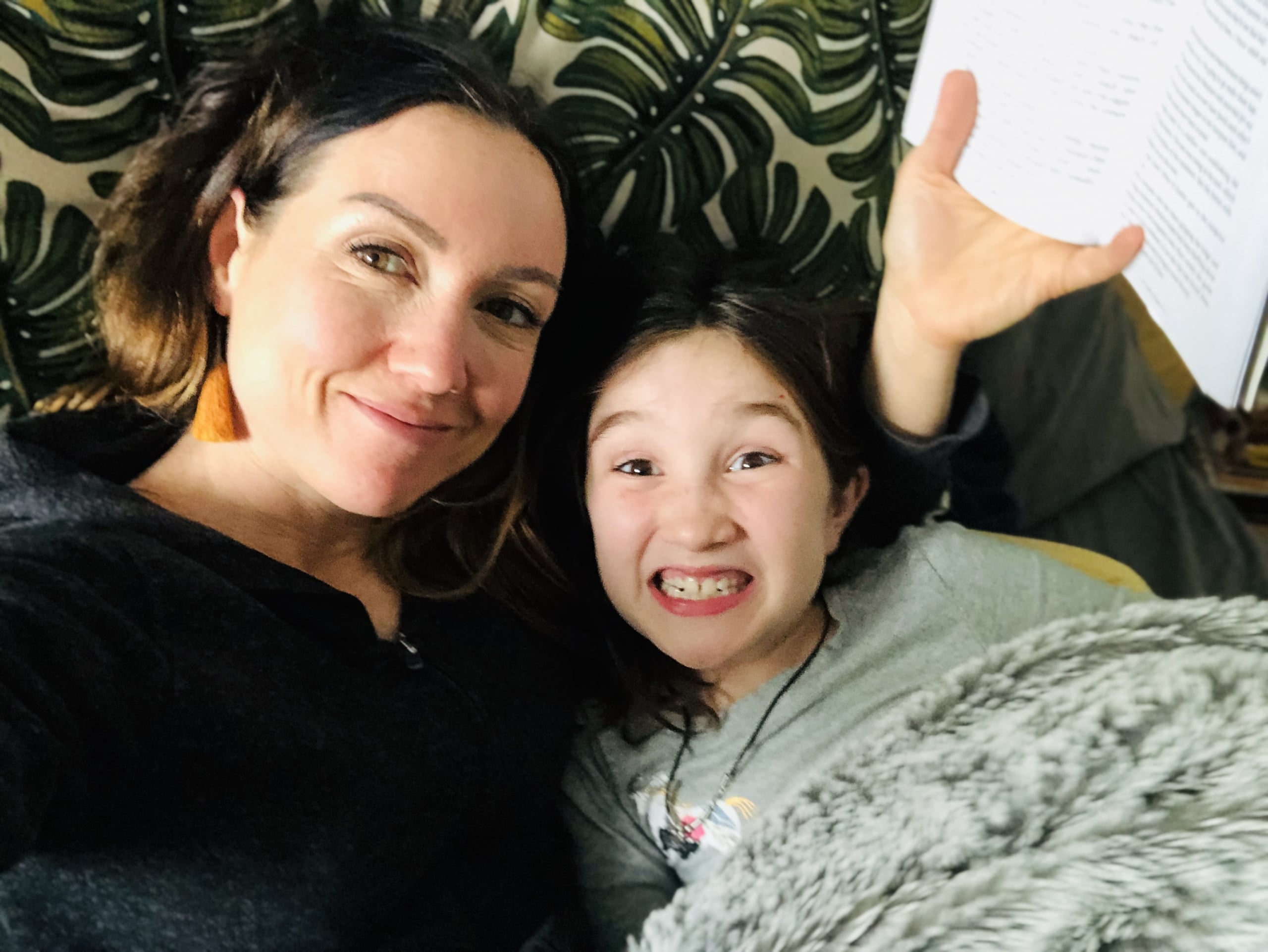
A lot of people think of courage as being fearless, but you don’t need courage for that. Courage is when you are afraid and you move toward (and sometimes through) that fear to do the thing anyway. That’s the challenge we embrace, that’s the out-of-the-comfort-zone stretch that takes courage.
Courage is embracing challenge, and for each of us that is something different. Courage for you right now might look like putting something new into the world, or it might look like not creating anything. It might be asking for support, or it might be offering it. Being in the unknown or trying to create a contingency plan. Getting up in the morning or sleeping in. Creating a schedule or plan for the day or not planning anything at all.
What we ask of our kids is so often more than what we’d be comfortable with ourselves. When we share what’s hard for us with our littles, they’re more likely to share what feels hard for them. Right now we are all uncertain of the future, and for children that is even more heightened. Here’s how we can support their visionary and courageous lionhearts.
Lead by Example.
Talk about the new things you are trying, including what’s hard for you, and share how you’re being courageous to try new things.
Make Space for Exploration.
Create an area of your house with up-for-grabs materials and dedicate one hour of your kids’ day to creative time with no pattern to follow and no project examples. My husband and I ask our kids if they want plastic bottles, old tea tins and other vessels before we recycle them. When they say yes, we rinse them and put them in the maker box, and soon we find them taped into some new weird and wonderful creation that appears in the house.
Follow Their Lead.
Notice what they’re interested in, encourage that burgeoning curiosity, and help them to move past their doubts to create a project around it. A “you got this” nudge from a caregiver can evolve into a lifelong lean towards courage.
When They Try Something New:
Share positive, non-evaluative praise.
for example, instead of saying “that’s beautiful,” you might say, “I notice you tried a different approach to that drawing,” or, “I especially love the choice to use so many different colors.”
Incorporate their creations.
My daughter made us aprons out of tissue paper and decorative balls, and we honored the creation, cracking up along the way, by cooking tacos in them as a family. When she was experimenting in the kitchen and brought me a glass of mystery liliquoi tea during a meeting, I paused for a moment and took a sip of the mystery concoction.
Lean into curiosity.
Ask questions about their work. Some of my favorites include:
- Can you tell me about this?
- What was most challenging about it?
- What might you do differently if you tried it again?
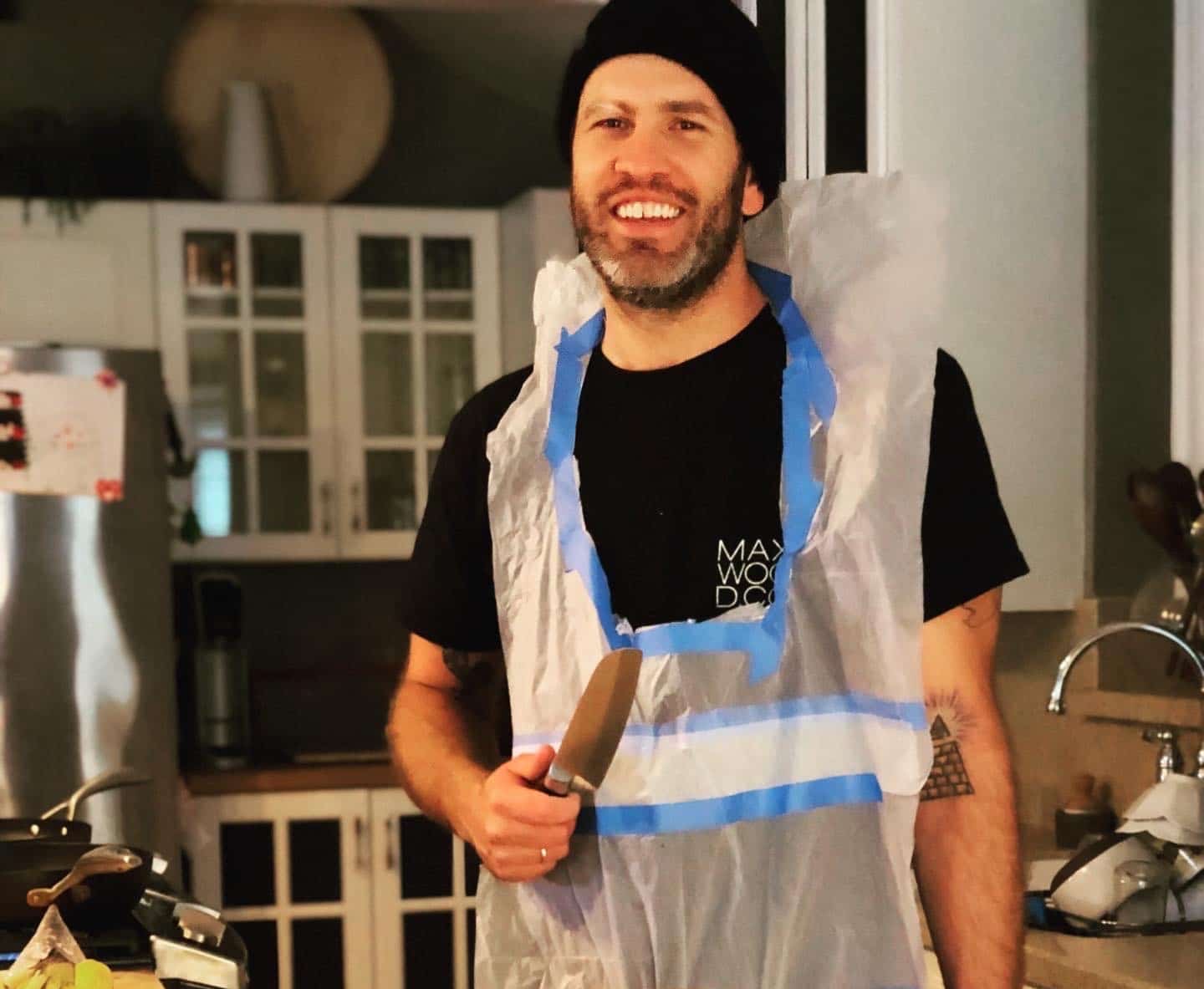
My family and I are settling into a new norm somewhere between the schedules of the first week and the quiet of the last one. We’re exercising, connecting, and creating with a little more space between our efforts. We’re paying extra attention to what courage looks like for others, being especially careful to notice when it’s different than what courage looks like for us. We’re shouting out props when we have them. We are finding that with this lens, courage is everywhere we look. We know that this time has changed our family and our world and that the coming months are going to change us even more. We are going to “try slow,” and see if that helps the change be an evolution.
—
Marie McDonald is Galileo’s VP of Communications & Southern California Operations. When she’s not heading up camp operations, Marie loves to write, paint, and adventure with her fam.
